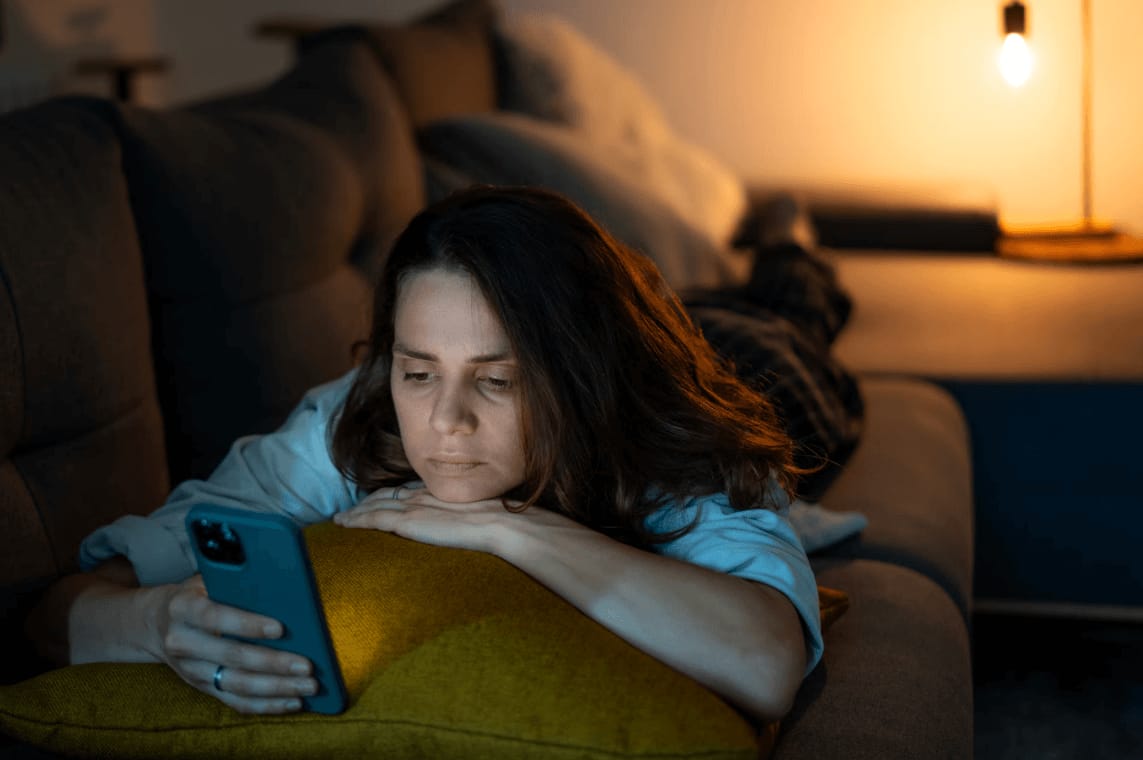- Thriving Guide
- Posts
- How Much Social Media Time Is Too Much
How Much Social Media Time Is Too Much
Experts weigh in on finding a healthy balance between scrolling and self-care.

You open an app just to check one notification and suddenly, 45 minutes have disappeared. Sound familiar? You're not alone. Social media is designed to be addictive, and its endless scroll has real consequences for our mental, emotional, and even physical health.
But is there such a thing as a “healthy” amount of time to spend on social media? Experts say yes and it depends on more than just your screen time counter.
The Psychology Behind the Scroll
Social media apps are engineered to keep us coming back. Each like, comment, or new piece of content delivers a tiny hit of dopamine the brain’s reward chemical reinforcing our urge to keep scrolling.
“The content on social media is designed to be engaging and often triggers a dopamine release, which is associated with the pleasure center of our brains,” explained Joe Whittington, MD, a board-certified emergency medicine physician in Southern California. “This reward mechanism can make social media scrolling addictive.”
But those fleeting feel-good hits may come at a cost. A 2021 study of over 5,000 U.S. adults found that increased social media use was associated with higher levels of depressive symptoms. Another study linked frequent app use with poorer self-esteem and increased feelings of comparison.
Is There a Safe Daily Limit?
According to Whittington, a healthy relationship with social media starts with boundaries that fit your lifestyle and don’t interfere with your mental health, sleep, or responsibilities.
For many adults, he suggests limiting leisure screen time to less than two hours per day. A good starting point? Use social media in small windows, such as 20 to 30 minutes at a time, no more than three times a day.
Shannon Bennett, PhD, clinical director at the Center for Youth Mental Health at NewYork-Presbyterian, offers a helpful ratio for school-aged children and teens three hours of offline activity for every one hour spent online.
If that feels impossible, don’t worry. The key is progress, not perfection. Gradually reducing your time and paying attention to how social media makes you feel can be just as important as hitting a specific time goal.
The Best (and Worst) Times to Scroll
Timing matters, too. Experts recommend avoiding social media:
During the first hour after waking up
In the hour before bed
These windows are crucial for mental clarity and sleep hygiene. Engaging with apps during these times can disrupt circadian rhythms, increase anxiety, and delay rest.
Instead, Whittington suggests checking social media during a lunch break or commute moments that won’t detract from quality time with others or work productivity.
Bennett adds that it’s not just about time of day it’s about context. Scrolling is better suited to solo downtime rather than when you’re around loved ones or trying to meet a deadline.
Simple Strategies to Cut Back
Here are practical, research-backed tips to create healthier digital habits:
Set app time limits: Most phones let you restrict usage to specific time frames or daily quotas.
Disable notifications: Minimize the dopamine-driven interruptions that lure you back in.
Track your screen time: Use your phone’s built-in tools to monitor where your time goes.
Check in with your mood: How do you feel after using a certain app—energized, relaxed, or drained?
Find an accountability partner: Share your goals with a friend or family member who can support you.
Delete or pause problematic apps: If one platform consistently affects your mood, take a break.
“Be mindful of how your body feels when you engage in social media,” said Yulia Fox, LMFT, a licensed behavioral health clinician with L.A. Care Health Plan. “Our emotions can give us valuable data on what we need whether that’s a pause, a breath, or a walk.”
Bottom Line: Awareness Over Abstinence
You don’t need to quit social media entirely to improve your well-being. But if you’re sacrificing sleep, feeling overwhelmed, or noticing negative emotions after scrolling, it’s worth reevaluating your digital habits.
Finding the right balance might mean limiting your time, choosing your platforms more mindfully, or building in offline activities that offer genuine connection and rest.
If you found this article helpful, subscribe to our newsletter or share it with someone who needs a healthier scroll.